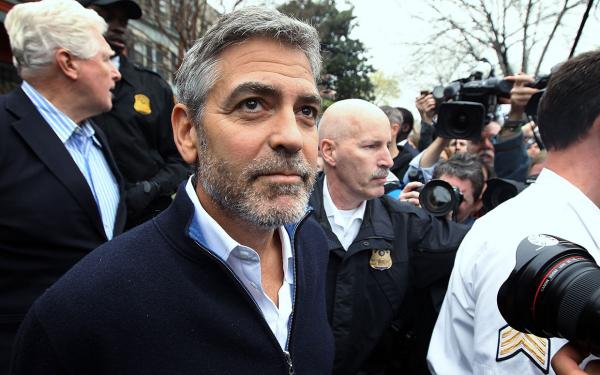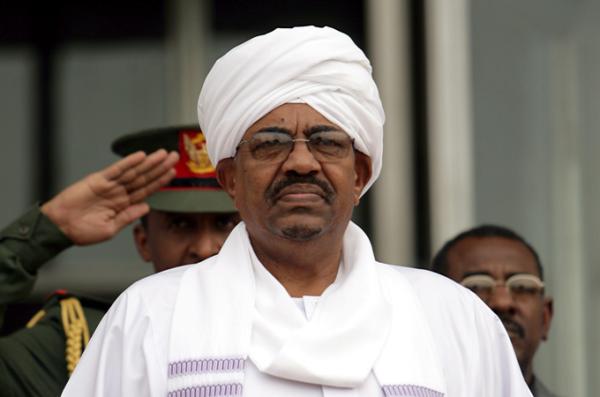George Clooney Uses Nespresso Money for Satellite to Spy on Sudan Dictator

George Clooney is a well-known activist, but this takes things to the next level. At a Nespresso event in Paris on Wednesday, the Oscar winner revealed the curious way he spends the money he earns from starring in the coffee commercials.
“Most of the money I make on the [Nespresso] commercials I spend keeping a satellite over the border of North and South Sudan to keep an eye on [Sudan President] Omar al-Bashir,” Clooney said, referring to his spy program, the Satellite Sentinel Project. The surveillance program tracks Sudan’s vicious army in an attempt to warn civilians before attacks occur.
Clooney has been a longtime advocate against violence in Sudan. Last year, he was arrested in Washington, D.C. at a protest he organized outside the Sudan embassy.
The actor, 52, said it’s only fair to turn cameras on the Sudanese dictator. “[Omar al-Bashir] puts out a statement saying that I’m spying on him and how would I like it if a camera was following me everywhere I went,” Clooney said Wednesday. “And I go, ‘Well, welcome to my life Mr. War Criminal.’ I want the war criminal to have the same amount of attention that I get. I think that’s fair.”

Al-Bashir has been charged with war crimes for leading genocide in Darfur by the International Criminal Court, and human rights activists are currently calling for his arrest.
In a 2011 interview with Parade, Clooney discussed what drives him as a humanitarian. “Maybe there’s some of this fame spotlight I’ve got that I can use elsewhere,” he said. “I find it’s liberating to do those kinds of things and not have to worry about my career anymore.”
The brutality in Sudan drew his attention in particular. “Two million people were killed in the north-south war in Sudan before 2005,” he said. “I wasn’t going to stand on the sidelines and not participate.”
The satellite spy progam, he said, helps to shed light on human rights violations happening overseas. “I set up this satellite system on the border of Abyei, and we’ve had incredible success in photographing mass atrocities,” he said. “The idea is, we’re just going to keep the pressure on. Turning the lights on doesn’t mean anything stops. But it makes it harder, and that’s our job.”
Оставить комментарий
Для комментирования необходимо войти через
![]() Вконтакте
Вконтакте